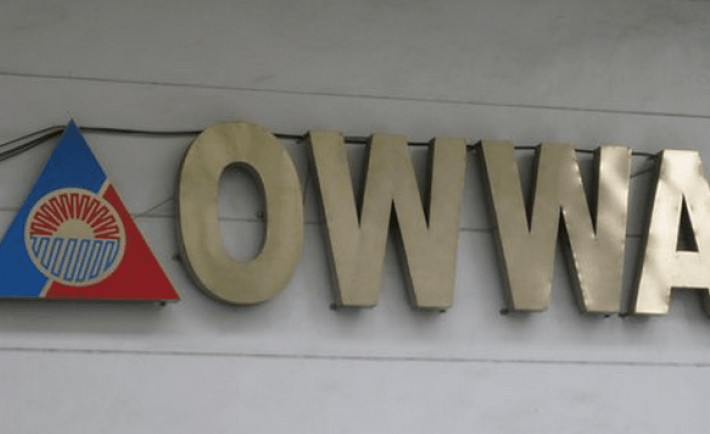The iSavta Team | 13.11.2019

What is OWWA?
The Overseas Workers Welfare Administration (OWWA) is an attached agency of the Department of Labor and Employment (DOLE) and a membership institution.
It protects and promotes the welfare of Overseas Filipino Workers (OFWs) and their dependents. It was formerly known as Welfare and Training Fund for Overseas Workers and was organized in 1977.
OWWA, as it is commonly known, is present in 31 overseas posts in 27 countries. It also has its regional presence in all the seventeen regions.
What does OWWA do?
OWWA focuses on the welfare of the OFWs and their families. It is present in all three stages of migration: pre-departure, on-site, and upon arrival. Before the first-time workers leave, OWWA educates them on the realities of overseas work. They also undergo basic language training. Abroad, OWWA assists the OFWs whenever they encounter concerns with their employers . Finally, when the OFW is back, OWWA is ready with its livelihood trainings and programs for the OFWs’ reintegration.
What are OWWA’s vision and mission?
OWWA develops and implements responsive programs and services while ensuring fund viability towards the protection of the interest and promotion of the welfare of its member-OFWs.
OWWA is the lead membership welfare institution that serves the interest and welfare of member-Overseas Filipino Workers (OFWs).
OWWA commits to a fund stewardship that is transparent, judicious, and responsive to the requirements of the member-OFWs.
What are OWWA’s mandates?
The agency has a two-fold mandate:
a. Delivery of welfare services and benefits; and
b. Ensuring capital build-up and fund viability
Programs and Services
The OWWA provides assistance to all its members in all its regional and overseas offices.
Services on-site include:
- Providing information and guidance;
- Psycho-social counseling and conciliation services;
- Legal assistance, outreach missions, and training, among others
On behalf of the OFW, the OWWA may provide appropriate representation with employers, agents and host authorities.
For you to understand more, please watch the video by clicking the link below:
OWWA: PROGRAMS, SERVICES AND BENEFITS
How is OWWA funded?
OWWA’s fund is a single trust fund pooled from the US$25.00 membership contributions of foreign employers, investment and interest income, and income from other sources.
How is OWWA managed?
OWWA is administered by the Board of Trustees through the Secretariat. It is headed by the Administrator and Deputy Administrator.
How can one be a member of OWWA?
The OWWA is a membership institution. For a US$25.00 membership contribution, an OWWA member is entitled to various benefits and services.
You can be a member by:
- Enrollment upon processing of contract at the POEA
- Voluntary registration of a would-be member at job sites overseas
Effectivity
OWWA membership, either through the compulsory or voluntary coverages, shall be effective upon payment of membership contribution up until expiration of the employment contract. The member is covered for a maximum of two years after which the membership has to be renewed.
What are OWWA’s Social Benefits?
- Death Benefit
An active member is covered for the duration of his employment contract. The coverage includes PhP 100,000.00 for death due to natural cause and PhP 200,000.00 for death due to accident.
- Disability and Dismemberment Benefit
A member is entitled to disability/dismemberment benefits of PhP 50,000.00 for partial disability and Php 100,000.00 in case of total permanent disability.
- Burial Benefit
On top of death benefit, a rider of PhP 20,000.00 will be received by legal heirs for the funeral expenses.
Does OWWA have educational programs?
Yes. An OWWA member may avail for himself/herself or his/her duly designated beneficiary any of the following scholarship programs, subject to a selection process and accreditation of participating institutions:
- Education for Development Scholarship Program (EDSP). The Education for Development Scholarship Program is an educational assistance offered to qualified dependents/beneficiaries of member-OFWs. The scholarship consists of a maximum of PhP 60,000.00 per school year leading to a four-to-five year baccalaureate course in any college or university.
- OFW Dependents Scholarship Program (OFW DSP). Educational assistance consisting of a maximum of PhP 20,000.00 per school year leading to a baccalaureate or associate degree in a state college or university for dependents whose active OFW-member parents receive a monthly salary of not more than USD 400.00.
- Skills-for-Employment Scholarship Program (SESP)
The Skills for Employment Scholarship Program is an educational training assistance where OFWs or their dependents can enhance their vocational and technical skills. It consists of a maximum of PhP 14,500.00 per course in any TESDA-accredited school.
- Seafarer’s Upgrading Program (SUP)
The Seafarers’ Upgrading Program is designed to upgrade the skills and develop the expertise of Filipino seafarers. First availment consists of a maximum of Php7, 500.00 training assistance. Availment in another training course is every after three (3) recorded membership.
- Education and Livelihood Assistance Program (ELAP)
Education assistance for survivors of a deceased OFW consisting of PhP5,000.00 for elementary, PhP 8,000.00 for high school and Php10,000.00 for college per school year and livelihood assistance amounting to Php 15,000.00 is given to the surviving spouse.
What is the Repatriation Program?
Repatriation is bringing distressed workers back to the Philippines. This includes airport assistance, temporary shelter at the OWWA Halfway House, and provision for their travel back to their provinces.
What is the Reintegration Program?
The Reintegration covers two (2) major components – economic and psycho-social components.
The economic component includes social preparation programs for livelihood projects or community-based income generating projects, skills training and credit facilitation and lending.
The psycho-social components includes community organizing program or organizing of OFW family circles and services like social counseling, family counseling, stress debriefing, and training on capacity building, value formation, etc.


